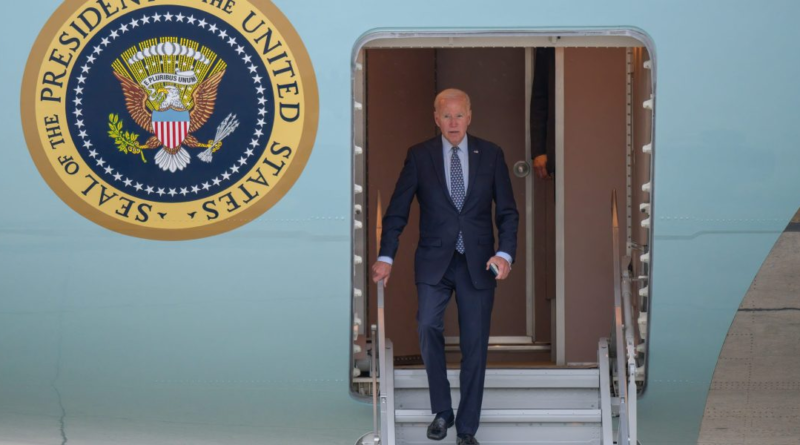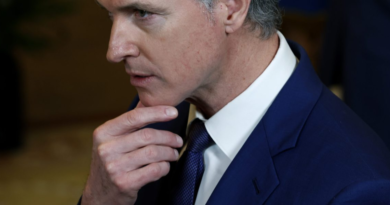Watch out Taylor Swift and C-suite execs, Biden’s new tax proposals aim to crack down on the corporate jet tax write off
President Biden’s new budget proposal is taking aim at corporate jet use, and the effects of his searing, yet improbable, tax changes could weigh heavily on celebrities and corporations as well as the private aviation industry.
In his State of the Union Address earlier this month Biden said he wanted to amend the tax code to make big corporations “finally pay their share.” With his budget proposal for 2025 he’s following through when it comes to private jets, but some say his changes could do more harm than good.
While Biden’s proposed tax changes could make an immediate impact, they’re unlikely to get through Congress in their current form, especially in an election year. Still, the President isn’t holding back.
The Biden administration’s proposed budget calls for gradually increasing the tax on jet fuel for private planes to $1.06 per gallon from its current rate of about 22 cents by the end of the decade. It would also increase the time it takes companies to fully write off the cost of a corporate jet to seven years. Currently, writing off a private jet takes five years, the same amount of time it takes to fully deduct the costs of a company car.
Under the current tax law, companies with private jets are allowed to deduct the costs associated with a plane as long as they are used for “ordinary and necessary” business purposes, University of New Haven associate professor of accounting and taxation James Mohs told Fortune. Yet, executives often use corporate jets for personal reasons. This is where the Internal Revenue Service says things get murky.
If an executive takes a personal trip on a company jet, the company has to carefully track their usage of the plane and the executive has to reimburse the company appropriately so that the IRS doesn’t cancel the company’s tax deduction for the plane.
Previously, the IRS said it didn’t have the resources to check if all those taking the corporate jet deduction were complying as they should. But with funds from the Inflation Reduction Act, the IRS said it would take a closer look at non-compliance.
“With expanded resources, IRS work in this area will take off. These aircraft audits will help ensure high-income groups aren’t flying under the radar with their tax responsibilities,” IRS Commissioner Danny Werfel said in a statement.
Private jet use has become a heated topic among Americans, with celebrities and business leaders like Taylor Swift and Elon Musk being equally criticized recently for flying private. The new tax changes could help Biden capitalize on this attention and possibly secure votes from the more than half of Americans who think corporations and wealthy individuals don’t pay their fair share of taxes.
The Department of Transportation says that commercial customers are subsidizing private jet travel with a $4.50 per-flight fee and a 7.5% tax to support the U.S. aviation system, while private planes contribute less than 1% of the taxes to keep the system running.
Still, industry and labor groups associated with private aviation rushed to protest Biden’s proposed tax changes. The business jet industry contributes $250 billion to the U.S. GDP and employs more than 1.2 million people, according to the National Business Aviation Association, an industry group, and some of its biggest players have a lot to lose from any changes to corporate jet tax incentives.
“The Biden administration’s sweeping plan would hurt business aviation and the jobs and communities that depend on it, and make it harder for U.S. companies to compete in a global economy,” NBAA President and CEO Ed Bolen said in a statement.
At the same time, Mohs told Fortune that Biden’s tax changes may be more about politicking than bringing in huge sums of lost tax revenue.
Companies are incentivized to follow IRS rules when it comes to executives using corporate jets for personal use, because they want to keep their tax deductions related to those assets, he added.
“I would not think other than the case of deliberate fraud they would find much,” Mohs said.




